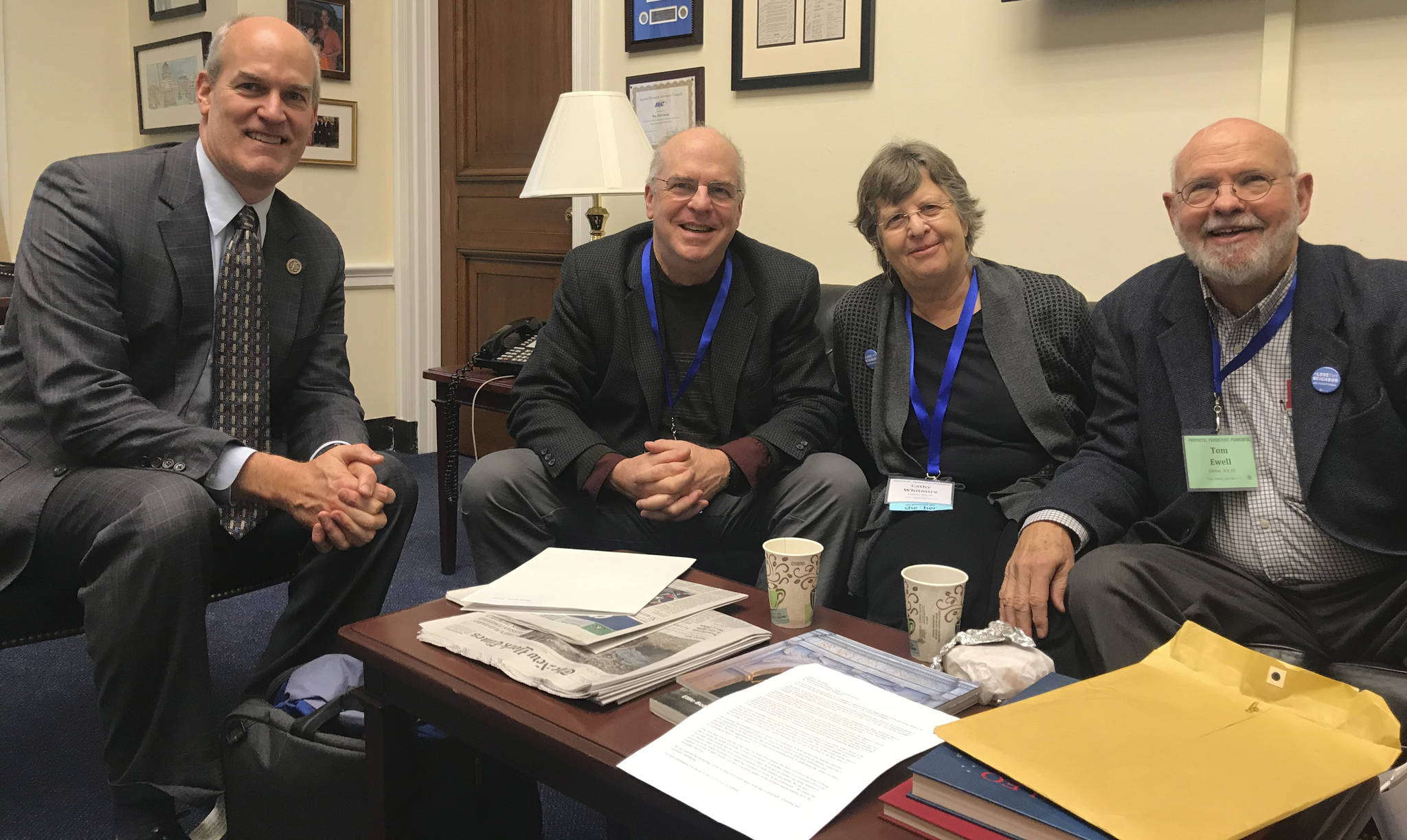by Tom Rawson
Special to the Sounder
The Friends Committee on National Legislation is a citizens’ group promoting peace, justice, opportunity and environmental stewardship. Established by the Religious Society of Friends (Quakers) in 1943, FCNL advocates in Congress for legislative initiatives that fund human needs and seek peaceful prevention of armed conflict. Every year in the fall, FCNL sponsors the Quaker Public Policy Institute. Hundreds of Quakers from around the country, as well as others supporting FCNL’s priorities, go to Washington, D.C., to lobby Congress on current issues.
For this year’s Quaker lobbying efforts, I joined 12 others from our state (three of us being from the 2nd Congressional District) to lobby on the Farm Bill. Different versions of this legislation passed each house of Congress. The House of Representatives passed a version that cut the Supplemental Nutrition Assistance Program for folks who are out of work. The Senate version kept SNAP benefits intact.
When legislation passes each house with differences, it must be reconciled in a conference committee. We went to our legislators’ offices to urge them to work to keep SNAP benefits in the bill. We met with staff in Senator Maria Cantwell’s office and Senator Patty Murray’s office. Those of us in the 2nd Congressional District met directly with Rep. Rick Larsen.
In preparation for my trip to Washington, D.C., I reached out to folks in the San Juan Islands to learn how cuts in the SNAP program would affect our local communities. I received many stories of how this program kept people out of poverty during lean times. These cuts would particularly impact our tourist economy because work is seasonal and food costs are higher due to transportation costs. I related these stories to the staff we met with and emphasized the negative economic impact of SNAP cuts on San Juan County. All three of our Congressional representatives had voted to keep SNAP intact, and we were assured that they would continue to be vigilant about protecting the program.
While we were in D.C., we learned that the conference committee had agreed to a final bill that maintained SNAP. Needless to say, hundreds of Quaker lobbyists were quite pleased with this news. While not every lobbying experience results in such a successful outcome, every experience is rewarding and serves as a counterbalance to the influence of corporate money and influence in policy decisions. I look forward to my next visit to Washington, D.C.




